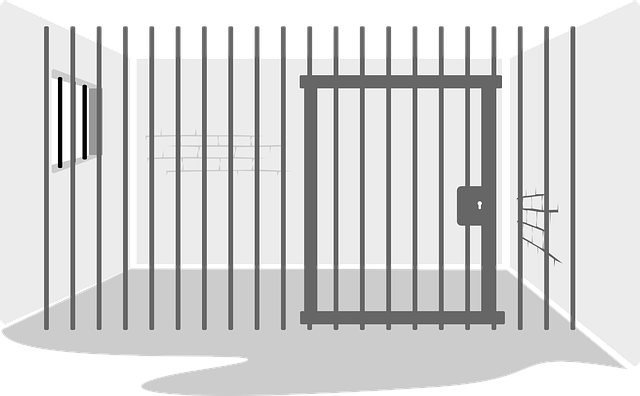The evolving legal landscape of Drug Interaction and DUI Law is rapidly transforming due to technological advancements, societal changes, and a deeper understanding of drug impairment. Autonomous vehicles pose new challenges regarding driver impairment criteria, necessitating adaptable legal frameworks. Improved drug testing methods demand careful consideration of potential errors and nuances in cognitive vs motor skill impairments for public safety. Advanced tech solutions like real-time data systems, driver monitoring, and blockchain-powered smart contracts are streamlining compliance and enhancing evidence collection. Data analytics is revolutionizing risk assessment, while cybersecurity is crucial to protect sensitive client data. Ethical considerations, particularly with AI integration, are essential to maintain fairness and impartiality in Drug Interaction and DUI Law cases.
“The legal landscape is undergoing a dramatic transformation as technology advances at an unprecedented pace. This article explores how tech solutions are future-proofing drug interaction and DUI laws, enhancing compliance, and revolutionizing legal processes. We delve into the evolving world of legal tech, focusing on smart contracts, automated systems, data analytics, cyber security, and ethical considerations. By harnessing these innovations, law firms can navigate the complex arena of Drug Interaction and DUI Law with enhanced precision and efficiency.”
- The Evolving Landscape of Drug Interaction and DUI Laws
- Technology's Role in Enhancing Legal Compliance
- Smart Contracts and Automated Compliance Systems
- Data Analytics for Predictive Risk Assessment
- Cyber Security Measures for Law Firms and Legal Entities
- Ethical Considerations: AI, Bias, and Fairness in Legal Tech
The Evolving Landscape of Drug Interaction and DUI Laws

The legal landscape surrounding Drug Interaction and DUI (Driving Under the Influence) laws is constantly evolving, reflecting advancements in scientific understanding and societal changes. As technology plays an increasingly significant role in our lives, it inevitably impacts how we regulate and enforce these critical laws. For instance, the rise of autonomous vehicles raises complex questions about driver impairment when advanced AI systems handle steering, braking, and acceleration. This shift necessitates a re-examination of DUI criteria to ensure they remain effective and relevant.
Moreover, technological innovations in drug testing methods are leading to more precise and rapid assessments of impairment. These advancements could potentially streamline the legal process, providing faster results and reducing potential errors. However, they also require a dynamic legal framework that can adapt to new challenges. For example, as research uncovers the impact of various substances on cognitive function versus motor skills, laws must be flexible enough to account for these nuances in order to maintain public safety.
Technology's Role in Enhancing Legal Compliance

Technology plays a pivotal role in future-proofing law, especially when it comes to complex areas like drug interaction and DUI (Drunk Driving under Influence) laws. Advanced tech solutions are enhancing legal compliance by providing efficient, accurate, and up-to-date information systems. For instance, digital platforms can offer real-time data on medication interactions, ensuring lawyers and judges have access to the latest scientific research and regulatory updates. This aids in making informed decisions when interpreting and applying drug interaction laws.
In the context of DUI, tech solutions like advanced driver monitoring systems and sophisticated breathalyzer technologies are revolutionizing evidence collection and analysis. These tools not only improve accuracy but also streamline court processes by providing faster, more reliable results. As technology continues to evolve, legal professionals can leverage these innovations to stay ahead of changing drug interaction and DUI regulations, ultimately ensuring fair and just outcomes in legal proceedings.
Smart Contracts and Automated Compliance Systems

Smart contracts and automated compliance systems are transforming legal practices, offering a futuristic approach to ensuring adherence to complex regulations, especially in fields like drug interaction and DUI law. These innovative tech solutions streamline processes by automatically executing predefined conditions, eliminating the need for manual intervention. For instance, smart contracts can be designed to verify patient eligibility for medication discounts or enforce specific guidelines for driving under the influence (DUI) cases.
By utilizing blockchain technology, these systems ensure transparency, security, and immutability in data handling. This is particularly beneficial in legal domains where accurate records and traceability are paramount. Automated compliance checks can identify potential Drug Interaction issues early on, alerting legal professionals to take necessary actions promptly. Similarly, DUI-related smart contracts can automate license suspension or fine imposition based on predefined rules, enhancing efficiency while reducing human error.
Data Analytics for Predictive Risk Assessment

In the realm of legal practice, leveraging data analytics for predictive risk assessment is emerging as a game-changer, particularly in areas like Drug Interaction and DUI Law. By analyzing vast datasets, legal professionals can now identify patterns and trends that were previously invisible, enabling them to anticipate potential risks and make more informed decisions. This proactive approach allows lawyers to develop robust strategies that future-proof their cases, ensuring they are well-prepared against evolving legal landscapes and technological advancements.
For instance, data analytics can uncover hidden correlations between drug interactions and their impact on DUI (Driving Under the Influence) cases. By studying historical data, legal experts can predict which drug combinations might yield more severe consequences, helping them to build stronger defenses or secure better outcomes for their clients. This predictive capability is invaluable in an era where technological advancements continue to reshape legal procedures and public safety regulations.
Cyber Security Measures for Law Firms and Legal Entities

As law firms and legal entities increasingly digitize their operations, strengthening cyber security measures becomes paramount to protect sensitive client data. This is especially crucial in areas like Drug Interaction and DUI Law, where clients often share intimate and potentially damaging information. Firms must implement robust firewalls, encryption protocols, and regular security audits to safeguard against data breaches. Additionally, training staff on cybersecurity best practices and raising awareness about phishing attempts and other threats are essential steps.
Beyond technical defenses, law firms should adopt a multi-layered approach that includes physical security for offices, secure backup procedures, and clear incident response plans. Given the sensitive nature of legal work, staying ahead of evolving cyber threats is not just an IT concern but a strategic imperative for maintaining client trust and ensuring the integrity of legal services.
Ethical Considerations: AI, Bias, and Fairness in Legal Tech

As legal tech integrates artificial intelligence (AI) into drug interaction and DUI law cases, ethical considerations come to the forefront. AI algorithms learn from data, and if that data reflects societal biases, the technology can perpetuate or even amplify those biases. This is particularly problematic in legal contexts where fairness and impartiality are paramount. For instance, an algorithm used to predict recidivism rates could be influenced by historical racial disparities in drug enforcement, leading to discriminatory outcomes.
To address these concerns, developers must prioritize transparency and accountability in AI design. This involves ensuring diverse and representative datasets, regular audits for bias, and clear explanations of how the technology arrives at its decisions. Additionally, legal professionals should actively engage with tech creators to establish guidelines that uphold ethical standards, particularly regarding sensitive areas like Drug Interaction and DUI Law cases.
As the legal landscape continues to evolve, embracing technology is essential for future-proofing drug interaction and DUI laws. By leveraging smart contracts, automated compliance systems, data analytics, and robust cybersecurity measures, the legal industry can enhance efficiency, reduce errors, and ensure ethical practices. These tech solutions not only navigate the complex world of drug interactions but also adapt to changing regulations, making them a game-changer in maintaining legal compliance. Embracing these innovations will be crucial for staying ahead in the digital age while upholding fairness and justice.






